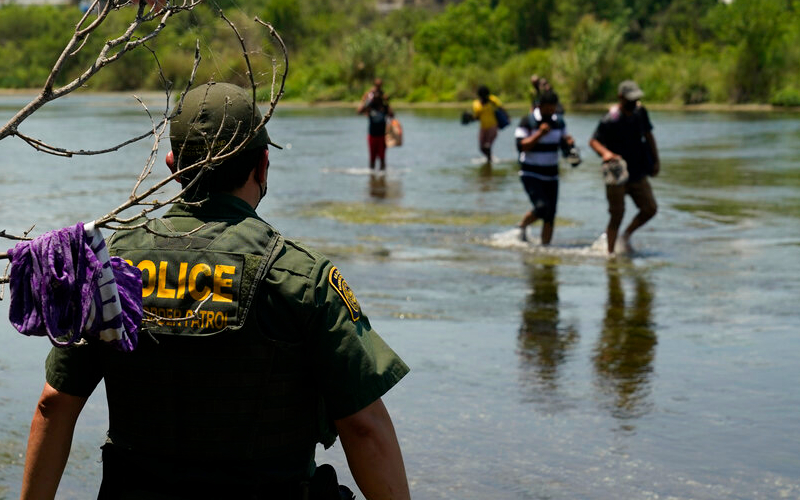In an exclusive interview with The Epoch Times, Master Sergeant Chuck Fourly (a pseudonym) expressed concern over revisions in the 2020 Department of Defense Instruction (DoDI) that governs the religious accommodation process.
Fourly – a veteran of two combat tours with a strong faith in God – spoke to American Family News, stating that he is one of nearly 3,600 Marines seeking exemption from the vaccine mandate based on religious grounds. Like all the others, he awaits a final decision. To date, only six Marines have been granted the exemption.
In response to an inquiry from AFN about the vaccine mandate, Headquarters Marine Corps states:
“The Marine Corps recognizes COVID-19 as a readiness issue. The speed with which the disease transmits among individuals has increased risk to our Marines and the Marine Corps’ mission. We are confident the vaccine protects our Marines, our communities, and the Nation.”
 Fourly disagrees, explaining that “the Marine Corps says that it affects mission accomplishment, namely readiness, but they haven’t been able to quantify or qualify how the COVID vaccine satisfies that tenant of mission accomplishment.”
Fourly disagrees, explaining that “the Marine Corps says that it affects mission accomplishment, namely readiness, but they haven’t been able to quantify or qualify how the COVID vaccine satisfies that tenant of mission accomplishment.”
He continues: “It can’t possibly be a readiness issue as they say, because there is all this data that suggests the vaccine is not safe and it doesn’t keep people from getting it, nor does it keep people from spreading it.”
He goes on to add that “if all the vaccine does is reduce symptoms, then that’s pretty negligible – and it certainly doesn’t outweigh the damage of losing an enormous collective of experienced people.”
As Fourly fights to maintain his religious objection to the vaccine, the combat veteran risks losing the benefits and stability that come with a 20-year career of honorable service in the Marine Corps. And his disappointment, he says, is “beyond what words can express.”
But something has changed …
In 1988 and 2009, DoD instructions stated that the DoD placed “a high value on the rights of members of the Armed Forces/Military Services to observe the tenets of their respective religions” as a matter of policy. According to Fourly, that statement was removed in 2020.
DoD spokesperson Lisa Lawrence responded as follows to an email inquiry from American Family News:
“The Department continues to place a high value on the rights of all members to practice and observe the tenets of their faith. DoDI 1300.17, dated Sept. 1, 2020, distinctly grounds that perspective in the law, rather than a subjective statement of policy.”
“It is noteworthy that a number of other new statements are included, [noting] the standard in Paragraphs 1.2.e.(1) and 1.2.e.(2), the burden of proof is placed upon the DoD Component, not the individual requesting the exemption.”
Fourly argues that although the "burden of proof" is placed upon the DoD, "they haven’t done so – nor do they seem really interested in doing so.” He speculates that the updated policy came as a result of nothing more than pressure from lawmakers amid the draconian response to COVID-19.
DoD spokesperson Lisa Lawrence added:
“[The] DoDI was coordinated with each Military Service as a standard process for the Armed Forces Chaplains Board, [adding that] the Department of the Navy would have reviewed on behalf of the Marine Corps, [and] the Deputy Chief of Chaplains for the Navy is also designated as Chaplain of the Marine Corps.”
Fourly questions the involvement of Marine Corps chaplains – and their apparent lack of response: “Whose team are they really on, and what master do they serve?” he wonders – then summarizes: “The latest revision of the DoD instruction basically says that religious freedom and the practice of one’s religion is not compatible with military service.”
AFN also spoke to Lt. Col. Robert Maginnis (USA-Ret.), who has previous experience writing regulations and reviewing many DoD instructions.
“Chaplains may or may not have made a stink about [the revision],” he admits. “It does look like there was a statement about giving deference to a service member’s religious beliefs in the past that ran afoul in this 2020 revision.”
What a difference 3 words can make
DoD Instruction 1300.17 now states [emphasis added]:
“DoD Components have a compelling governmental interest in mission accomplishment at the individual, unit, and organizational levels, including such necessary elements of mission accomplishment as military readiness, unit cohesion, good order and discipline, and health and safety.”
“[That phrase] 'compelling governmental interest' is where the mandate really gets its enforcement,” says Maginnis.
And clearly, says Fourly, “an accommodation can’t go against a compelling governmental interest.” He's convinced that the revised language of the instruction "did nothing more than give them a way out – because who is left to define a compelling government interest? It’s the government, which is under no obligation to substantially define what that interest is.”
That three-word phrase – "compelling governmental interest" – appears eight times in the revised policy.







